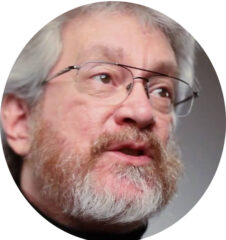Background
A collective intelligence exercise towards shaping the research questions of Social AI, driven by societal challenges. It is implemented through a structured conversation among inter-disciplinary scientists, looking at the relationship between AI and society from multiple perspectives.
For human-AI scientists and social scientists, the challenge is how to achieve better understanding of how AI technologies could support or affect emerging social challenges, and how to design human-centered AI ecosystems that help mitigate harms and foster beneficial outcomes oriented at the social good.
Social Artificial Intelligence
As increasingly complex socio-technical systems emerge, made of people and intelligent machines, the social dimension of AI becomes evident. Examples range from urban mobility, with travellers helped by smart assistants to fulfill their agendas, to the public discourse and the markets, where diffusion of opinions as well as economic and financial decisions are shaped by personalized recommendation systems. In principle, AI could empower communities to face complex societal challenges. Or it can create further vulnerabilities and exacerbate problems, such as bias, inequalities, polarization, and depletion of social goods.
The point is that a crowd of (interacting) intelligent individuals is not necessarily an intelligent crowd. On the contrary, it can be stupid in many cases, due to network effects: the sum of many individually “optimal” choices is often not collectively beneficial, because individual choices interact and influence each other, on top of common resources. Navigation systems suggest directions that make sense from an individual perspective, but may create a mess if too many drivers are directed on the same route. Personalized recommendations on social media often make sense to the user, but may artificially amplify polarization, echo-cambers, filter bubbles, and radicalization. Profiling and targeted advertising may further increase inequality and monopolies, with harms of perpetuating and amplifying biases, discriminations and “tragedies of the commons”.
The network effects of AI and their impact on society are not sufficiently addressed by AI research, first of all because they require a step ahead in the trans-disciplinary integration of AI, data science, network science and complex systems with the social sciences. How to understand and mitigate the harmful outcomes? How to design “social AI” mechanisms that help towards agreed collective outcomes, such as sustainable mobility in cities, diversity and pluralism in the public debate, fair distribution of resources?
Registration
Please register here
Organizers
- Dino Pedreschi (University of Pisa)
- Chiara Boldrini (IIT-CNR)
- Letizia Milli (University of Pisa)
- Laura Sartori (University of Bologna)
In collaboration with:
- SoBigData++, the European Research Infrastructure for Big Data and Social Mining
- SAI, the CHIST-ERA project “Social eXplainable Artificial Intelligence”
- XAI, the ERC Advanced Grant "Science and technology for the eXplanation of AI decision making
Event Contact
- Dino Pedreschi (University of Pisa)
Programme
| Time | Speakers |
|---|---|
| 16:00 – 17:00 | Setting-the-stage – plenary session
Fire-start addresses by AI scientists and social scientists:
|
| 17:00 – 18:00 | Breakout – four parallel brainstorming rooms
|
| 18:00 – 18:30 | Restitution – plenary session (video) reports from the mentors and rapporteurs of the breakout sessions, wrap-up |
Meet the speakers

Professor Alex 'Sandy' Pentland directs MIT Connection Science, an MIT-wide initiative, and previously helped create and direct the MIT Media Lab and the Media Lab Asia in India. He is one of the most-cited computational scientists in the world, and Forbes recently declared him one of the "7 most powerful data scientists in the world" along with Google founders and the Chief Technical Officer of the United States. He is on the Board of the UN Foundations' Global Partnership for Sustainable Development Data, co-led the World Economic Forum discussion in Davos that led to the EU privacy regulation GDPR, and was central in forging the transparency and accountability mechanisms in the UN's Sustainable Development Goals. He has received numerous awards and prizes such as the McKinsey Award from Harvard Business Review, the 40th Anniversary of the Internet from DARPA, and the Brandeis Award for work in privacy. He is a member of advisory boards for the UN Secretary General and the UN Foundation, and the American Bar Association, and previously for Google, AT&T, and Nissan. He is a member of the U.S. National Academy of Engineering and council member within the World Economic Forum.

Laura Sartori is an Associate Professor of Sociology at the Department of Political and Social Sciences at the University of Bologna. She holds a Ph.D. in Sociology and Social Research from the University of Trento (2002) and ever since worked on several topics related to the social and political implications of technology: from ICTs to AI. Current projects are about 1. Inequalities and public perception of Artificial Intelligence, 2. Money and Complementary currencies.

Stuart Russell is a Professor of Computer Science at the University of California at Berkeley, holder of the Smith-Zadeh Chair in Engineering, and Director of the Center for Human-Compatible AI. He is a recipient of the IJCAI Computers and Thought Award and from 2012 to 2014 held the Chaire Blaise Pascal in Paris. He is an Honorary Fellow of Wadham College, Oxford, an Andrew Carnegie Fellow, and a Fellow of the American Association for Artificial Intelligence, the Association for Computing Machinery, and the American Association for the Advancement of Science. His book "Artificial Intelligence: A Modern Approach" (with Peter Norvig) is the standard text in AI, used in 1500 universities in 135 countries. His research covers a wide range of topics in artificial intelligence, with an emphasis on the long-term future of artificial intelligence and its relation to humanity. He has developed a new global seismic monitoring system for the nuclear-test-ban treaty and is currently working to ban lethal autonomous weapons.

Mona Sloane is a sociologist working on design and inequality, specifically in the context of AI design and policy. She is a Senior Research Scientist at the NYU Center for Responsible AI, an Adjunct Professor at NYU’s Tandon School of Engineering, a Fellow with NYU’s Institute for Public Knowledge (IPK) and The GovLab, and the Director of the *This Is Not A Drill* program on technology, inequality and the climate emergency at NYU’s Tisch School of the Arts. She is principal investigator on multiple research projects on AI and society, and holds an affiliation with the Tübingen AI Center at the University of Tübingen in Germany. Mona also is the conveyor of the IPK Co-Opting AI series and serves as editor of the technology section at Public Books. Follow her on Twitter @mona_sloane.

Dino Pedreschi is a professor of computer science at the University of Pisa, and a pioneering scientist in data science and artificial intelligence. He co-leads with Fosca Giannotti the Pisa KDD Lab - Knowledge Discovery and Data Mining Laboratory http://kdd.isti.cnr.it, a joint research initiative of the University of Pisa and the Italian National Research Council - CNR. His research focus is on big data analytics and mining, machine learning and AI, and their impact on society: human mobility and sustainable cities, social network analysis, complex social and economic systems, data ethics, discrimination-preventing and privacy-preserving data analytics, explainable AI. He is currently shaping the research frontier of Human-centered Artificial Intelligence, as a leading figure in the European network of research labs Humane-AI-Net (scientific director of the line “Social AI”). He is a founder of SoBigData.eu, the European H2020 Research Infrastructure “Big Data Analytics and Social Mining Ecosystem” www.sobigdata.eu. Dino is currently the Italian member of the Responsible AI working group of GPAI – the Global Partnership an AI, a member of the OECD Network of Experts in AI and the coordinator of the working group “Big Data & AI for Policy” of the Italian Government “data-driven” Taskforce for the Covid-19 emergency. Twitter: @DinoPedreschi



